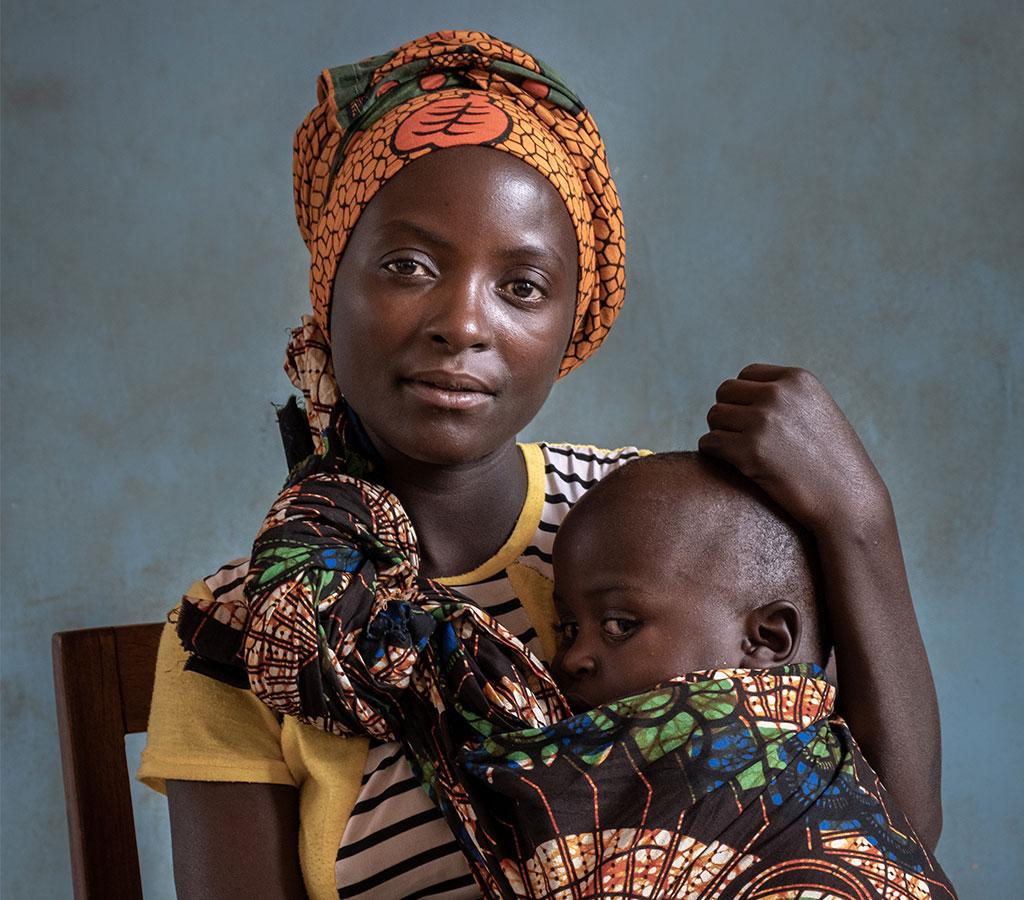
Humanitarian context
Tanzania has made progress in its fight against child undernutrition. In 2022, the political and security situation remained calm, but hunger continued to grow due to food insecurity. As a result of long seasons of drought, epidemics and various disease outbreaks, an estimated 17% of the population faced acute food crises.
Last year, Tanzania's 2nd Multi-Sectoral National Nutrition Action Plan was launched and implemented in 30 regions. The plan provides strategic guidance for both the public and partners to invest in nutrition for sustainable development.
BENEFICIARIES
workers
Our activity
In 2022, Action Against Hunger reached 534,014 people in Tanzania through interventions to improve access to safe water, provide safe sanitation and good hygiene and also to treat and prevent undernutrition, improve food security and maintain livelihoods. Our teams trained the population on healthy nutrition, screened children and other vulnerable groups for undernutrition and provided counselling. We build and improve latrines in schools and educate children in hygiene, sexual and reproductive health practices.
Last year we trained 5,759 smallholders in agroecological techniques so they could increase their production and improve their practices after harvesting vegetables, such as drying crops in the sun to endure during the scarcity seasons. Smallholders also participated in our nutrition education sessions, which included practical lessons on cooking utensils, how to prepare and handle food, or how to feed young children.
WHERE WE HELP
We help 24.5 million people each year. We work in 55 countries in Africa, Asia, Latin America and Europe, those most threatened by hunger.
EYEWITNESSES
MARIAM: "EVERY MOTHER WANTS TO PROVIDE HER CHILD WITH A HEALTHY DIET, BUT HOW ARE WE SUPPOSED TO DO THAT?"
Tanzania has the sixth largest population in Africa. A high fertility rate means that the number of people living in poverty continues to rise. Many of them live on less than two dollars a day. Malnutrition remains a common problem affecting 450,000 children struggling with acute malnutrition.
Children struggle to access the treatment they need due to a lack of health workers, shortages of life-saving drugs and low awareness among mothers about nutrition practices. Unfortunately, many mothers watch helplessly as their children face what is commonly known as the "disease without a name."
Life in a rural community like Mwapwa is difficult. However, thanks to the support of participants in the People's Postcode Lottery, we have expanded our work in Mwapwa, in the Dodoma region of Tanzania, and have established a partnership with the Tanzanian government to address malnutrition.
Mariam and Merina are two of the mothers in the Mwapwa community who do their best to provide their children with enough food, but vital nutrients are often missing from their diets.
Action Against Hunger supported Mariam as she helped her son Samson recover from malnutrition. Mariam was feeding her son Samson porridge, but he was weak and very sick because he was not getting adequate food. "I didn't know about the role nutrients play in my son's health," explains Mariam. "I think that's one of the reasons why my son suffered." Samson became one of the first children to be treated for malnutrition in the community, which meant he didn’t need to be hospitalised.
Merina faced the same challenges as Mariam, as she was unable to provide her son Richard with a healthy diet. "Every mother wants to provide her child with a healthy diet, but how are we supposed to do that? When people talk about the 5 food groups, what do they mean?"
Merina and Mariam do not face these difficulties alone. In Mwapwa, many mothers and caregivers were failing to include certain essential nutrients in their children's diets. Lack of understanding of the food groups and difficulties in obtaining the ingredients seen as necessary were contributing to this problem.
To support mothers, we conducted 40 cooking sessions with the aim of imparting practical skills in meal planning, food preparation and feeding young children. These small, realistic changes have ensured that children in the community receive the varied diets they need.
"This programme has opened our eyes and taught us how we can provide a balanced diet," Merina explains, before concluding, "The food our children need is all around us."
